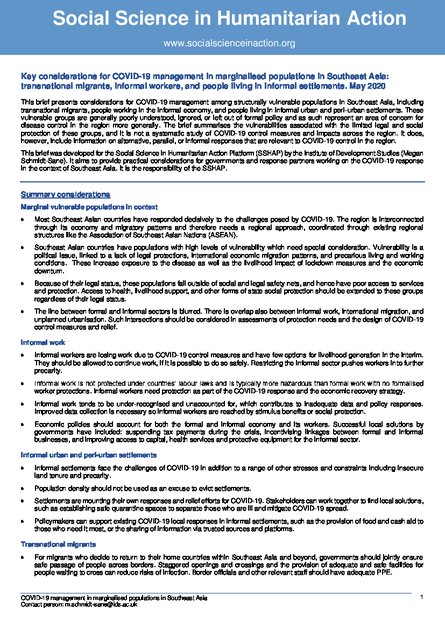
This brief presents considerations for COVID-19 management among structurally vulnerable populations in Southeast Asia, including transnational migrants, people working in the informal economy, and people living in informal urban and peri-urban settlements.
These vulnerable groups are generally poorly understood, ignored, or left out of formal policy and as such represent an area of concern for disease control in the region more generally.
The brief summarises the vulnerabilities associated with the limited legal and social protection of these groups, and it is not a systematic study of COVID-19 control measures and impacts across the region. It does, however, include information on alternative, parallel, or informal responses that are relevant to COVID-19 control in the region.